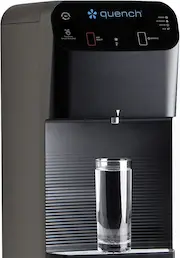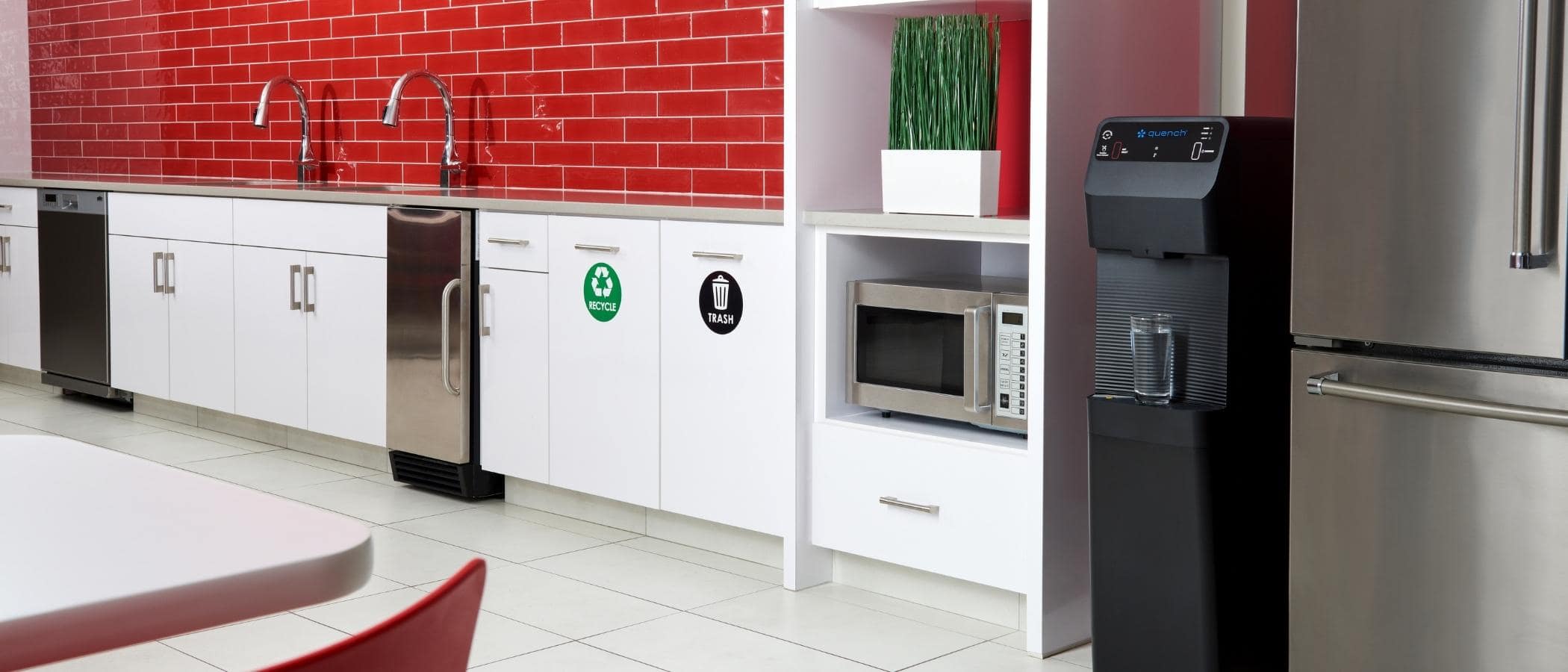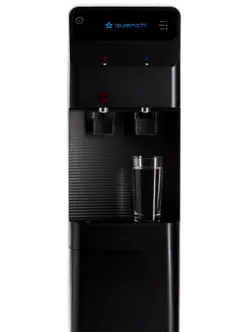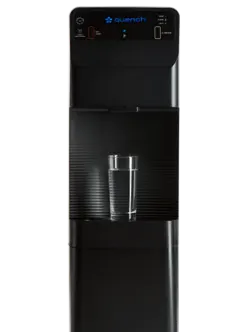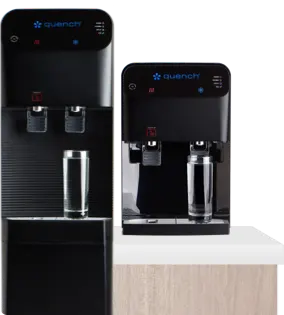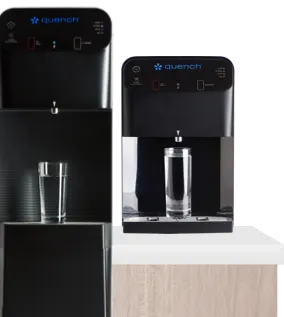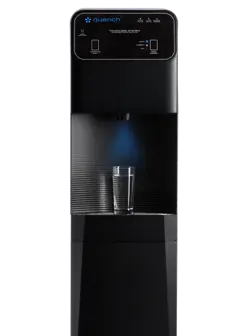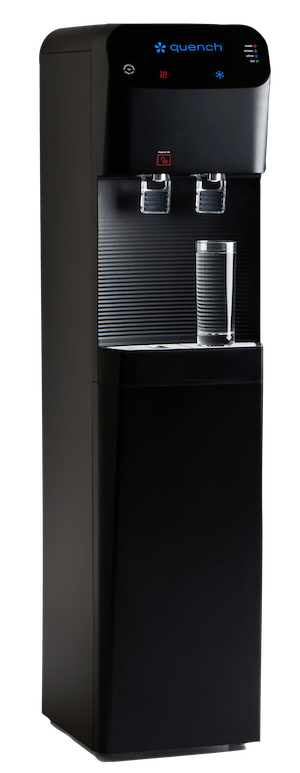Drinking clean water is essential to our overall health and well-being, yet it’s easy to overlook how these water consumption choices can have a significant impact on the environment. As sustainability becomes a key focus for many, there’s never been a better time to think about transitioning to a more eco-friendly water option. In fact, NielsenIQ’s latest sustainability study reports that 69% of global consumers feel environmentally friendly initiatives are more important to them now than they were two years ago.
With that in mind, we’re taking a closer look at the impact of different drinking water options and the best alternatives to boost your water sustainability moving forward.
The True Environmental Impact of Bottled Water
Traditional water choices often involve single-use plastic bottles or large-gallon jugs. While these methods effectively provide water, it’s crucial to be aware of the significant costs and environmental impact associated with them.
The cost of plastic water bottles and gallon jugs can quickly add up, depending on your needs. To put this in perspective, a Quench study found that a bottled water delivery service that serves 50 people costs over $4,200 a year, on average, and a 5-gallon water delivery service that serves the same amount of people costs over $3,400 annually.
More than monthly expenses, the consistent use of plastic bottles can do significant environmental damage. These environmental ramifications include:
- High amounts of plastic waste: This is usually the most widely acknowledged problem linked to disposable plastic water bottles. Regardless of whether you sip from a disposable bottle or use water from a gallon jug, the plastic ultimately finds its way into landfills. As per a Reuters report, a staggering 54.9 million bottles are consumed every hour, totaling 40 million bottles per month.
- Wasted water during production: Another environmental consequence of these choices, not widely recognized, is the surplus water wasted during the production process. And wasting water is just as crucial a concern as the subsequent issue of plastic waste.
- Large use of oil: To meet the demand for U.S. water bottle manufacturing, a significant amount of oil is needed. This can lead to oil pollution, causing severe harm to the water environment and adversely affecting animals and insects in the process.
- High carbon emissions: The culmination of production and delivery leads to substantial CO₂ emissions. The process of producing and manufacturing bottled water releases greenhouse gases at every stage of its lifecycle, and the subsequent deliveries to organizations only exacerbate this problem — negatively impacting your carbon footprint.
- Less energy efficiency: Plastic water dispensers may also be using more energy than necessary. You can benefit from an alternative that’s more energy-efficient than these options.
Plastic Bottled Water and Microplastics
A plastic bottle also poses health risks beyond environmental concerns, with the threat of microplastic contamination. Essentially, water bottles may release tiny particles of plastic into the water over time, leading to unintentional microplastic ingestion upon consumption. Studies suggest these microplastics may harbor harmful chemicals and toxins, raising concerns about potential health consequences — such as triggering an immune response or causing local particle toxicity. While the long-term effects are still being researched, there’s growing evidence linking exposure to various health issues.
Ultimately, as the focus on reducing environmental impact grows, if your current water solution involves plastic bottles, it’s worth considering healthier, more sustainable, and cost-efficient alternatives. Continue reading to explore eco-friendly options for a refreshing and environmentally conscious water supply that supports your long-term health.
Considering 6 Eco-friendly Drinking Water Alternatives
Luckily, several water options are more environmentally friendly than plastic drinking bottles to keep in mind. It can be overwhelming to search for a suitable substitute, but being aware of the choices at your disposal can guide you in making the right decision for your unique water quality needs. More sustainable options to contemplate as you make your choice include:
1. Glass Bottles
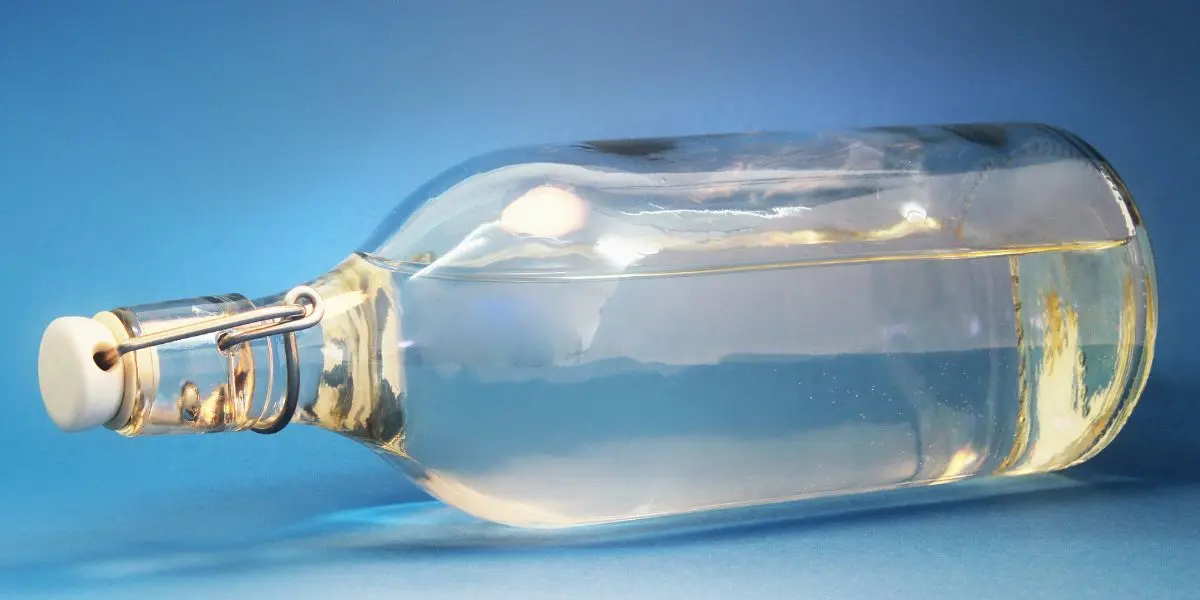
You might also consider using a glass bottle to benefit the environment and your carbon footprint. This option is intended to be reused with the added benefit of being easy to clean. They’re an effective way to keep filtered water fresh without the risk of harmful chemicals contaminating the water.
2. Plant-Based Water Bottles

A plant-based water bottle is a type of beverage container made from plant-derived materials rather than traditional plastic, which comes from fossil fuels. Often made from materials like PLA (polylactic acid) — which is derived from renewable resources like cornstarch or sugarcane — these bottles are biodegradable; not to mention the production process for plant-based bottles typically involves lower carbon emissions compared to traditional plastic. The popularity of this sustainable alternative is increasing, and according to a report from Zion Market Research, the global biodegradable water bottles market size is projected to surpass $3,549.81 million by 2030.
3. Boxed Water
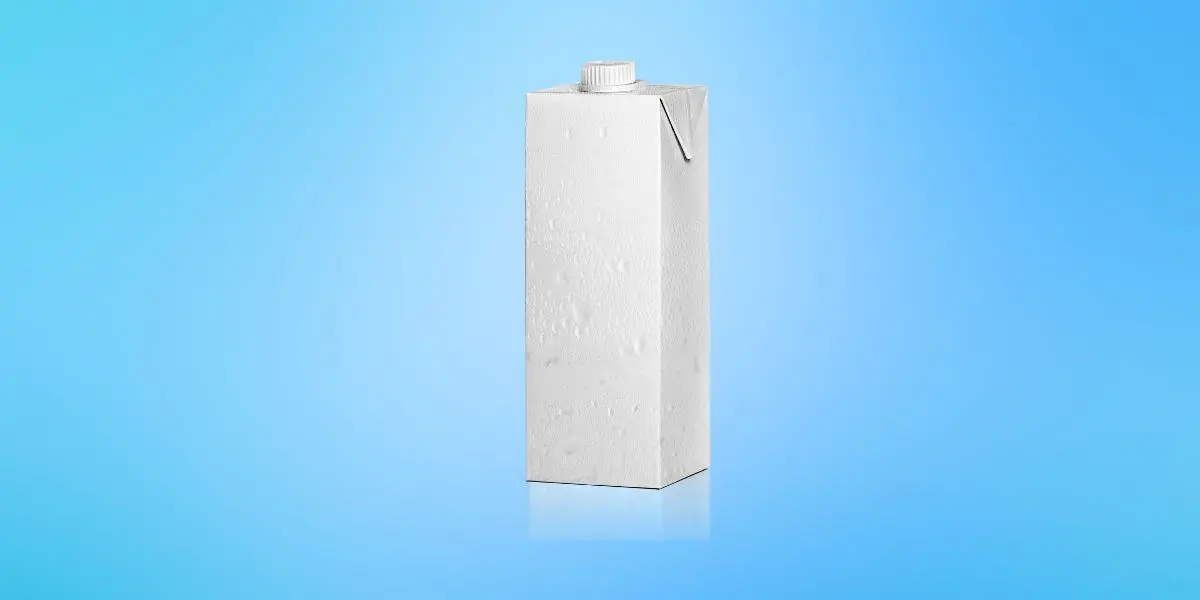
Boxed water is exactly what it sounds like — water that comes in a box instead of a plastic container. This alternative was created with the objective of sustainability in mind. Not only is this option renewable and recyclable but it also results in a smaller carbon footprint than single-use bottled water. However, this may not be the most cost-efficient alternative at your disposal.
4. Reusable Water Bottles
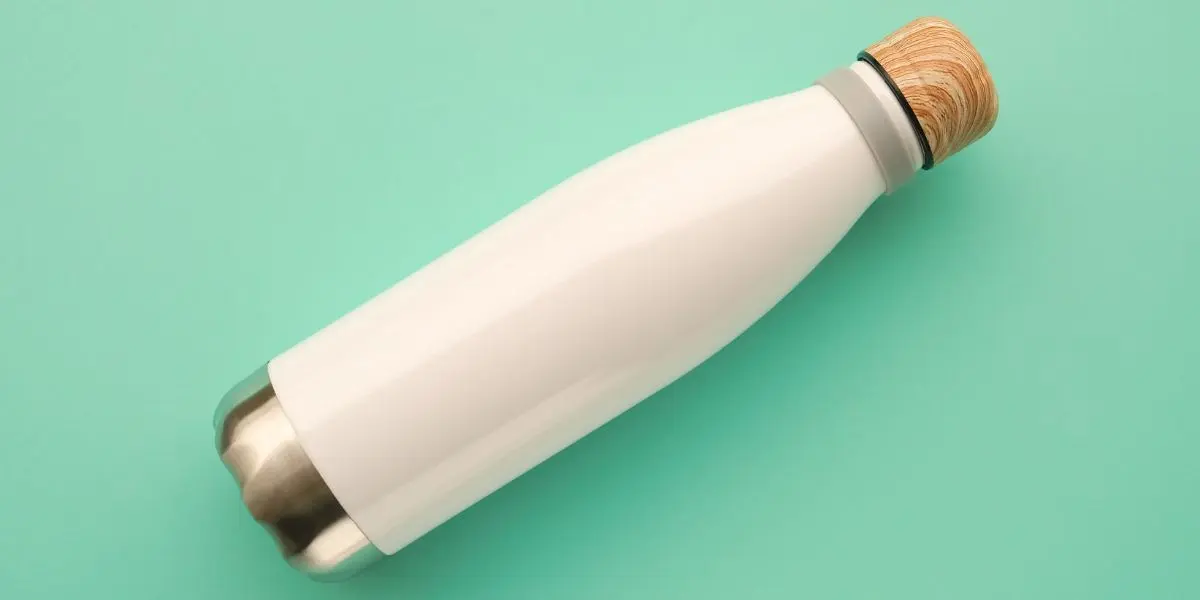
While glass bottles are a reusable option to consider, a reusable water bottle, in general, might also do the trick. When you’re looking for a reusable water bottle that fits your unique hydration needs, there are a few factors to keep in mind. Firstly, consider the material options available and the unique advantages that each can offer. You’ll also want to take into account the bottle’s durability, lid design, size and capacity. Finally, regarding sustainability, you can opt for bottles with eco-friendly credentials (e.g., BPA-free or crafted from food-grade materials) and select brands known for their commitment to environmental efforts and product quality.
Here are just some of the types of reusable bottles you might try:
- Stainless steel or metal bottles
- Glass bottles
- Silicone bottles
- Insulated bottles
- Collapsible bottles
- BPA-free plastic bottles
5. Aluminum Cans
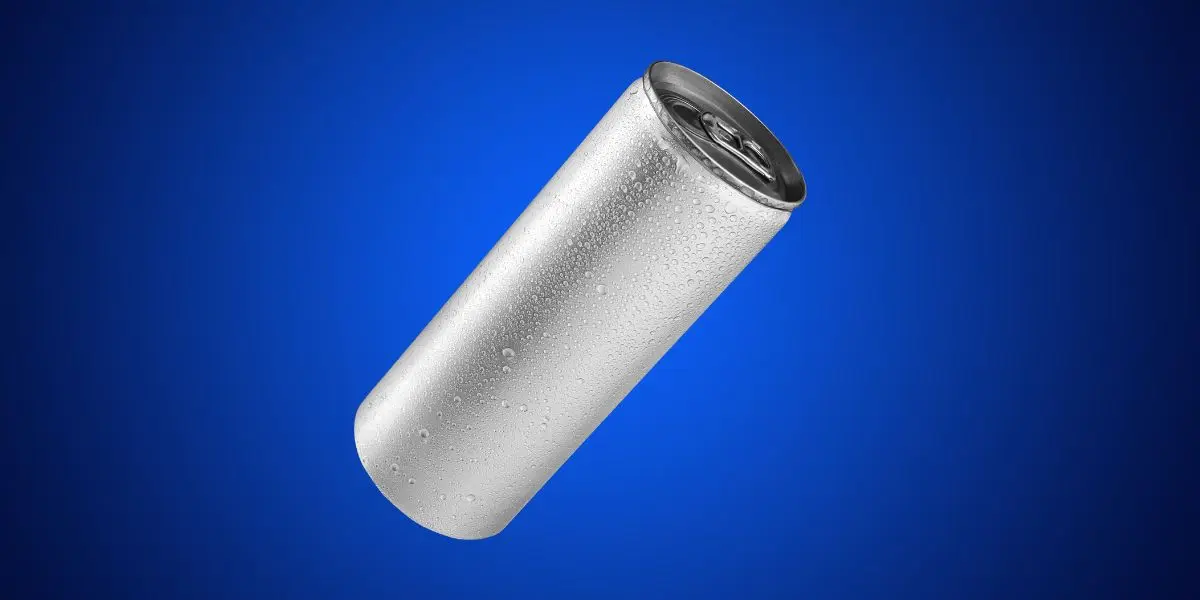
Because aluminum is highly recyclable and a significant percentage more is reused, cans of drinking water prove an eco-friendly alternative to single-use plastic bottles. According to a report from The Aluminum Association and the Can Manufacturers Institute (CMI), people recycle aluminum cans at nearly double the rate of plastic bottles. Plus, the recycling process for aluminum requires less energy in comparison, contributing to reduced carbon emissions.
6. Water Installation Systems
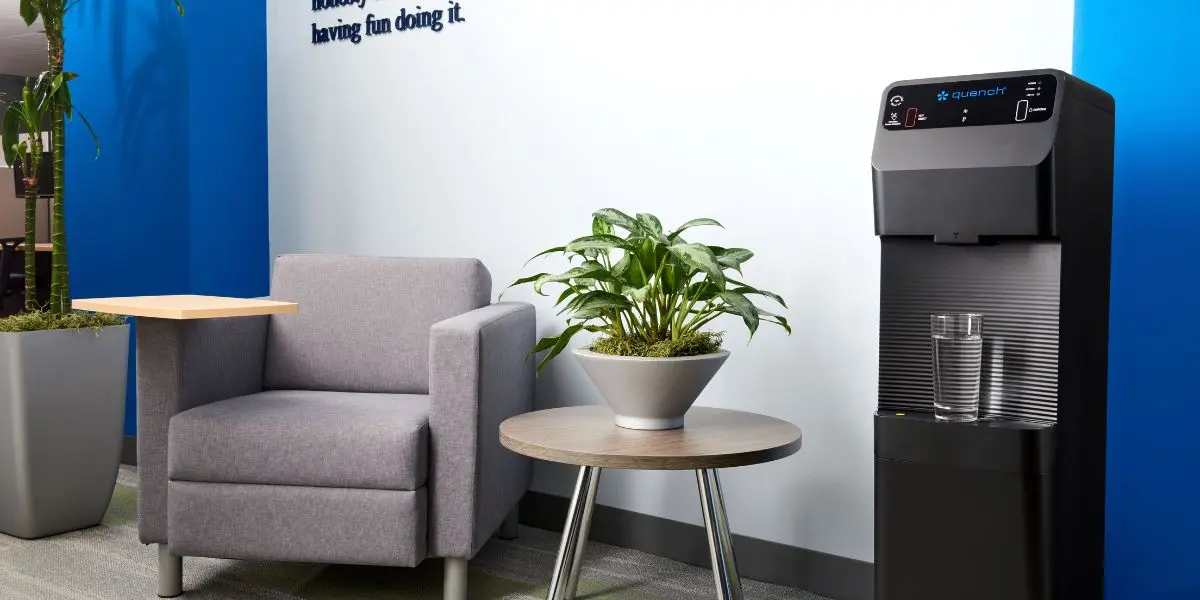
State-of-the-art technology and advanced solutions are quickly paving the way for the future of drinking water — and water filtration and installation systems are at the forefront of this transformation. Bottleless water coolers from vendors like Quench are connected directly to your water line to provide an endless supply of clean drinking water. Moreover, with a 5-filter setup filtration system, which includes a filter that adds minerals and electrolytes back into your water, you can rest assured your drinking water will taste great too. With a bottleless water dispenser, you can:
- Eliminate the costs of bottles and jugs
- Save money in the long run
- Eliminate the cost of regular delivery
- Use less energy
- Save valuable space in your home or workplace
Perhaps most importantly, a bottleless water cooler is significantly better for the environment than traditional options — as a result of eliminating bottled water and frequent delivery. With these options in mind, you’re on the right track to greater sustainability. But, why exactly is this so important? To answer that, let’s take a look at the advantages of eco-friendly water alternatives.
Key Benefits of More Sustainable Water Options
There are many ways to boost your sustainability practices, and turning to more eco-friendly water options is no exception. The overall impact of implementing sustainable drinking water alternatives includes:
- Reducing carbon emissions: Because carbon emissions from production and delivery are so high, employing a more eco-friendly approach can quickly reduce these numbers. Such emissions are typically associated with rising sea levels, disturbing natural habitats, extreme weather events, and more. Simply transforming your water procurement can go a long way toward reducing these detrimental impacts.
- Supporting water conservation: As the production and manufacturing of plastic bottles go down, so does the water waste that results. Ditching the traditional bottled water dispenser is an effective way to preserve essential drinking water for the future.
- Lowering water procurement costs: Adopting more sustainable drinking water options, whether at home or in the workplace, lowers costs due to the elimination of reliance on single-use plastic bottles or frequent deliveries of large-gallon jugs. By shifting to alternatives like bottleless water coolers or reusable bottles, you can expect to see a significant reduction in associated expenses.
- Decreasing energy consumption: The use of more sustainable options is advantageous for your energy consumption, as energy production and consumption are directly related to air pollution, climate change, water pollution, and more. This means a more energy-efficient option can play a key role in significantly reducing these issues.
- Improving convenience: Enhance convenience by eliminating the need for constant restocking of plastic bottles or managing large water jug deliveries. Access to eco-friendly alternatives ensures a more seamless and hassle-free experience.
- Significantly reducing plastic waste: The importance of this impact can’t be understated. According to ClinMed International Library, the indiscriminate disposal of plastics on land and open burning lead to the release of toxic chemicals into the air — causing significant public health hazards. Considering how many plastic bottles end up in landfills each year, you can make a difference by simply decreasing these numbers.
The Value of Eco-Friendly Drinking Water
While the environmental benefits of sustainability are valuable on their own, it’s also worth considering the impact on your overall lifestyle. By reducing your environmental impact, you’re likely to experience increased well-being and satisfaction. Additionally, exploring alternatives to bottled water could be the key to promoting healthy daily hydration, resulting in improved personal engagement, elevated spirits, higher energy levels, and increased productivity.
Overall, opting for more sustainable choices, like bottleless water coolers, proves advantageous for your health, energy, and expenses. This is instrumental in keeping you at your best and ultimately contributing to better outcomes in various aspects of life.
Start Your Sustainable Water Journey With Quench
Making the switch to eco-friendly drinking water options is more crucial than ever before, and if you’re looking to procure your water with ease, look no further than Quench. With high-quality products and reliable service coast-to-coast, Quench is a vendor you can depend on. Explore a broad range of bottleless water dispensers that provide an endless supply of clean water on demand.
In terms of sustainability, a bottleless water cooler:
- Is the greenhouse equivalent of planting up to 120 trees a year
- Can keep over 7,000 single-use bottles out of the environment every year
- Can keep over 150 5-gallon water bottles out of the environment each year
If you’re ready to leverage more eco-friendly water options, try our product finder to get matched with the bottleless water cooler that’s right for your needs. Or, get a free estimate to get started on your journey to great-tasting water and improved sustainability today.
